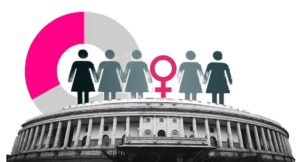Majority and Majoritarianism
Last month, our nation celebrated two important milestones. First, the 70th Constitution Day and the second was the 250th Session of the Rajya Sabha. These two key landmarks reflect the inherent deepening of our Parliamentary Democracy.
A significant achievement of the Indian Parliamentary System based on the first past the post system has been its ability to achieve the fine balance between electoral majority and majoritarianism. Our people have demonstrated time and again that their democratic values are strong and intact. More often than not, India has given the numerical majority to political parties or coalition blocks in terms of the number of seats, but they have never given a popular majority in terms of percentage of votes. Thereby enabling the elected majority to form a stable government but at the same time, forcing them to take along and include all minority opinions.
Never, in our country, right since the elections of 1952 till the elections of 2019, has any leader or Party got 51% of the popular vote share. In 1957, Pt. Nehru with 371 seats out of 490 at that point of time got a massive mandate in terms of seats, he only managed to get 47.78% of popular votes. Even in the elections of 1984, Rajiv Gandhi secured a massive mandate, 404 out of 514 seats, but not 51% of the popular vote share. In 2019, the BJP got a comfortable majority of 303 seats out of 543 with 37.76% of the popular vote share. In each election so far, no party or any coalition has ever got a majority mandate of the popular vote.
The Indian electorate has time and again conveyed to the ruling party that yes, they may be entitled to form the government with a majority of the seats won by them, but they have also to take into consideration, all those people, who may not have voted for them. The mandate is to govern as a Majority Party with a stable government while carrying others with you.
It is also to be noted, that every time a government has behaved on the contrary, the voter has punished the incumbent in the elections that follow. Unfortunately, this message of the Indian electorate has never been clearly understood by the political players. That is why we think we can do anything and everything, when we have an overwhelming majority in the legislature. But that cannot and should not be the case.
A numerical majority in elections gives you the right to make a stable Government. The lack of popular majority forbids you from becoming a majoritarian Government. That is the message & essence of our Parliamentary Democracy.






